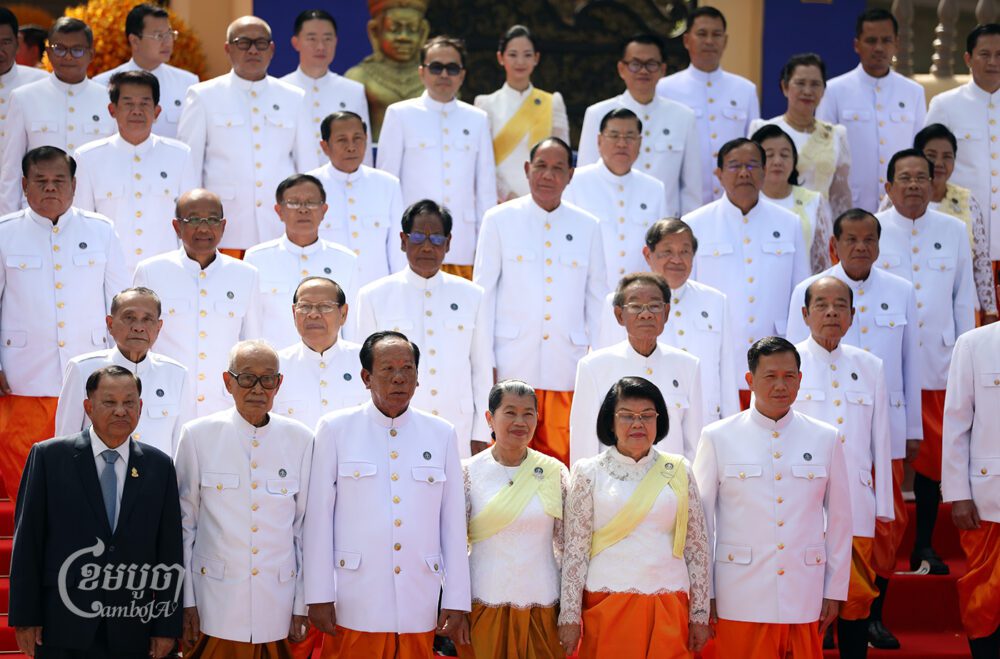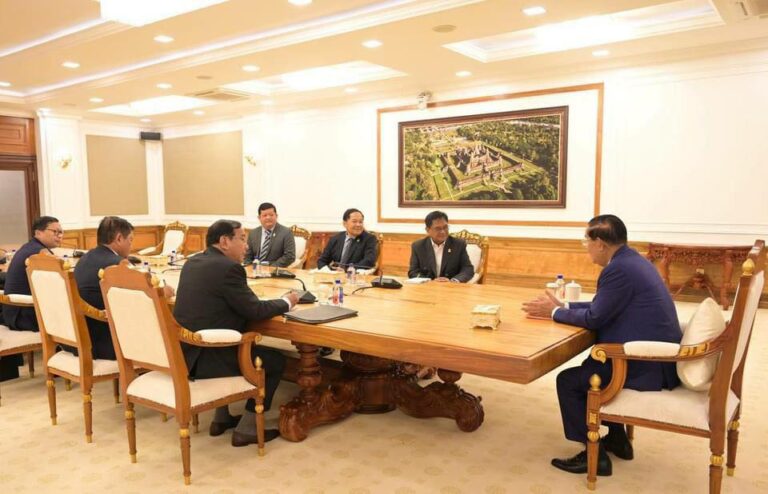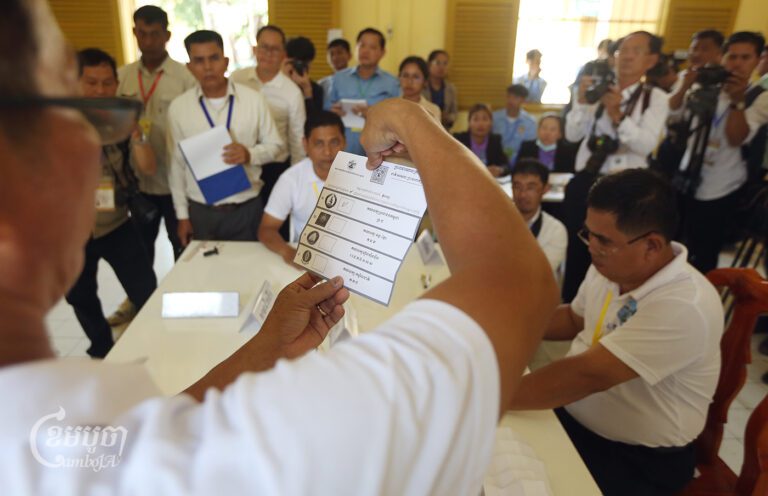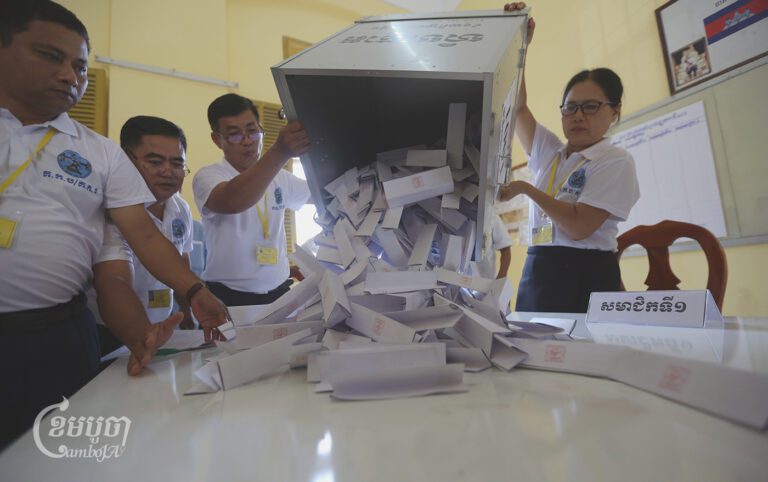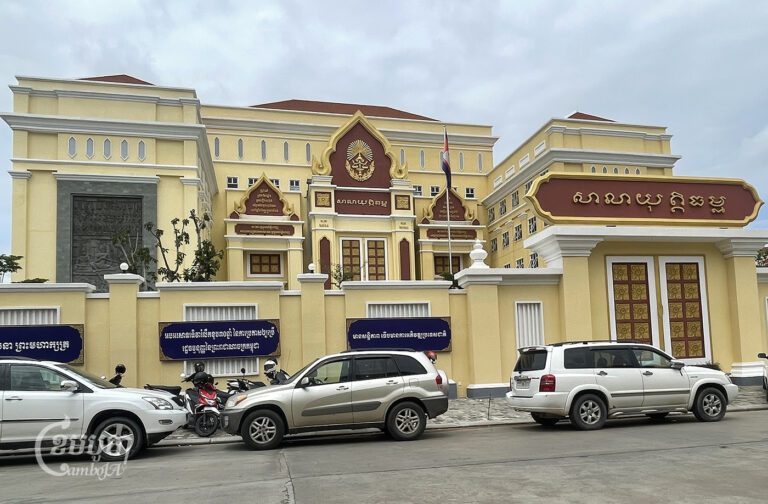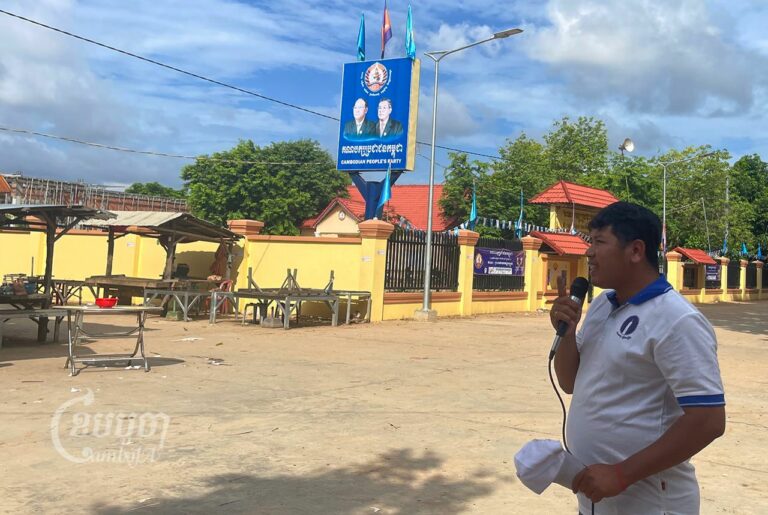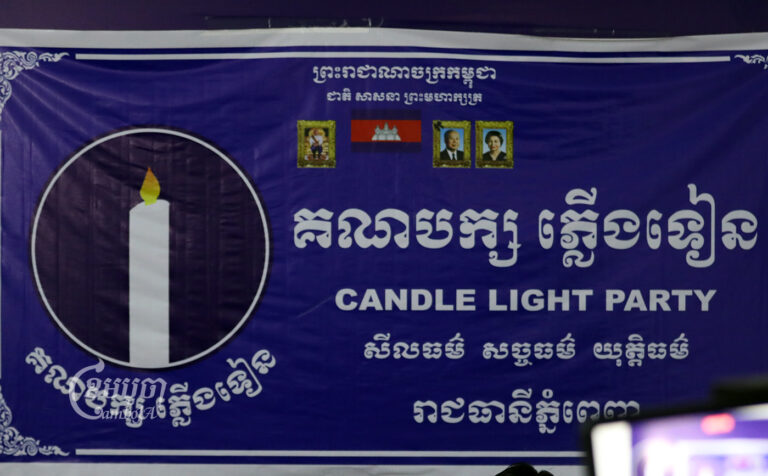The ruling Cambodian People’s Party (CPP) replaced 30 of its elected National Assembly lawmakers last Thursday, according to the National Election Committee (NEC).
The National Assembly first convened on August 21 as the newly elected lawmakers took their oaths of office. The ruling CPP took all but five of the 120 National Assembly seats in the July national elections. Three days after being sworn in, one quarter of the ruling CPP’s lawmakers from 17 provinces withdrew from parliament, the database Kamnotra first reported.
Twenty-two of the withdrawn lawmakers had just received cabinet minister positions, including Prime Minister Hun Manet’s brother and Kampong Speu representative Hun Many, who became Civil Services Minister.
NEC spokesperson Hang Puthea said that NEC rules allow for the replacement of withdrawn lawmakers with reserve candidates.
“As a rule, political parties must submit both eligible candidates and reserve candidates, so in case the eligible candidates are absent or the party requests the removal, the party must notify the NEC And the NEC will move the reserve candidates to replace them,” he said.
CPP spokesperson Sok Eysan said the lawmakers who became high-ranking ministers had to withdraw from the National Assembly.
“Previously, the senior minister was both a member of parliament and a senior minister, but now because it [the National Assembly] is too small, so we have to change,” he said. “The senior minister is no longer a member of parliament, so the role of lawmakers is given to someone else who is in the next candidate instead.”
“The change is a strengthening of democracy, with the prime minister, deputy prime minister becoming both members of parliament and holding a position in the government, making things more consistent because the government implements laws passed by the National Assembly,” he added.
The new government has more than doubled the number of appointed secretary and undersecretary of states compared to the previous one, many of the appointees being the children of high level government officials.
After the 2018 elections, in which the ruling CPP won all 125 National Assembly seats, 50 elected lawmakers were withdrawn and replaced by reserve candidates.
Chhengpor Aun, a visiting fellow at the International Institute for Strategic Studies in Singapore, told CamboJA that the dominant political party enjoys the constitutional prerogative to appoint and shuffle lawmakers based on the party’s candidate list.
“The sheer number of the transfers is significant. …It could be CPP’s way of equitably rewarding these senior cadres after their contribution in the past campaigning season,” he said. “To note, the departing lawmakers are serving in the new cabinet as either deputy prime ministers, senior ministers, ministers, or secretaries of state. Thus, it benefits the party that such transfers keep everyone happy and ensure their loyalties.”
“The change somehow appeases senior party members and factions, ensuring the party’s unity that the new government needs most,” he added.
List of withdrawn lawmakers and their replacements (Source: NEC):
Battambang
- Koeut Rith (Justice Minister)
- Sak Setha (Senior Minister)
- Replaced by:
- Ly Kimleang
- Phou Puy
Kampong Cham
- Hang Chuon Naron (Education Minister)
- Lou Kimchhun (Government Delegate in charge of the Sihanoukville Autonomous Port as of earlier this year)
- Replaced by:
- Nao Thuok
- Kol Thearin
Kampong Chhnang
- Ouk Rabun (Senior Minister)
- Ly Narun (Secretary of State of Rural Development Ministry)
- Replaced by:
- Long Chhun Lay
- Kop Mariyas
Kampong Speu
- Hun Many (Civil Services Minister)
- Replaced by:
- Ou Sam Ourn
Kampong Thom
- Thong Khon (Senior Minister)
- Replaced by:
- Tha Yav
Kampot
- Cham Nimul (Commerce Minister)
- Replaced by:
- Van Dara
Kandal
- Sun Chanthol (Deputy Prime Minister)
- Sok Chenda Sophea (Foreign Affairs Minister)
- Vongsey Vissoth (Council of Ministers Minister)
- Chou Vichith (Secretary of State of Finance Ministry)
- Replaced by:
- Sos Mosine
- Chhun Sirun
- Khem Chankiry
Kratie
- Prum Sokha (Senior Minister)
- Replaced by:
- Im Chanthol
Phnom Penh
- Ing Kantha Phavi (Women’s Affairs Minister)
- Othsman Hassan (Senior Minister)
- Replaced by:
- Soun Rindy
- Hou Sry
Prey Veng
- Sborng Sarath
- Heu Pavy (Government Delegate in charge of Phnom Penh Autonomous Port as of earlier this year, according to Kamnotra database)
- Replaced by:
- Pich Chivorn
- Mao Bunnarin
Pursat
- Keo Rattanak (Mines and Energy Minister)
- Replaced by:
- Rofi Osman
Siem Reap
- Tekreth Kamrong (Secretary of State of Commerce Ministry)
- Replaced by:
- Bun Tharith
Preah Sihanouk
- Say Sam Al (Land Minister)
- Tekreth Samrach (Secretary of State of Land Ministry)
- So Khan Rithykun (Secretary of State of Environment Ministry)
- Replaced by:
- Chev Kimheng
- Nen Malay
- Tak Vantha
Takeo
- Chea Vandeth (Telecommunications Minister)
- Replaced by:
- Ly Sukry
Pailin
- Y Chhean (Senior Minister)
- Replaced by:
- Sao Sarath
Oddar Meanchey
- Kun Kim (Senior Minister)
- Replaced by:
- Nov Som
Tbong Khmum
- Eang Sophalleth (Environment Minister)
- Chay Borin (Religion Minister)
- Dith Tina (Agriculture Minister)
- Chhay Rithisen (Rural Development Minister)
- Replaced by:
- San Arun
- Mot Yusos
- Yin Bunnang
- San Sarana


